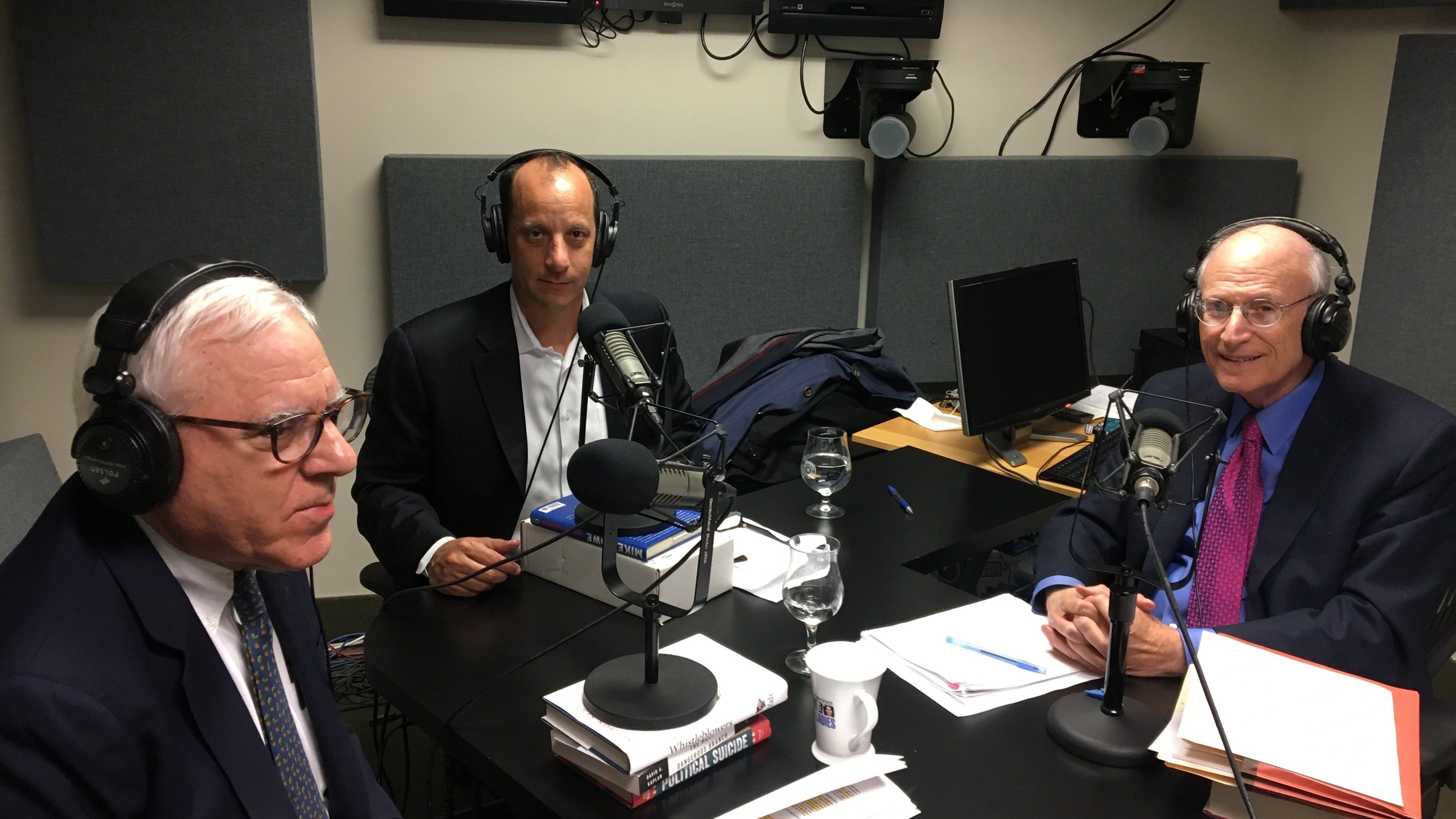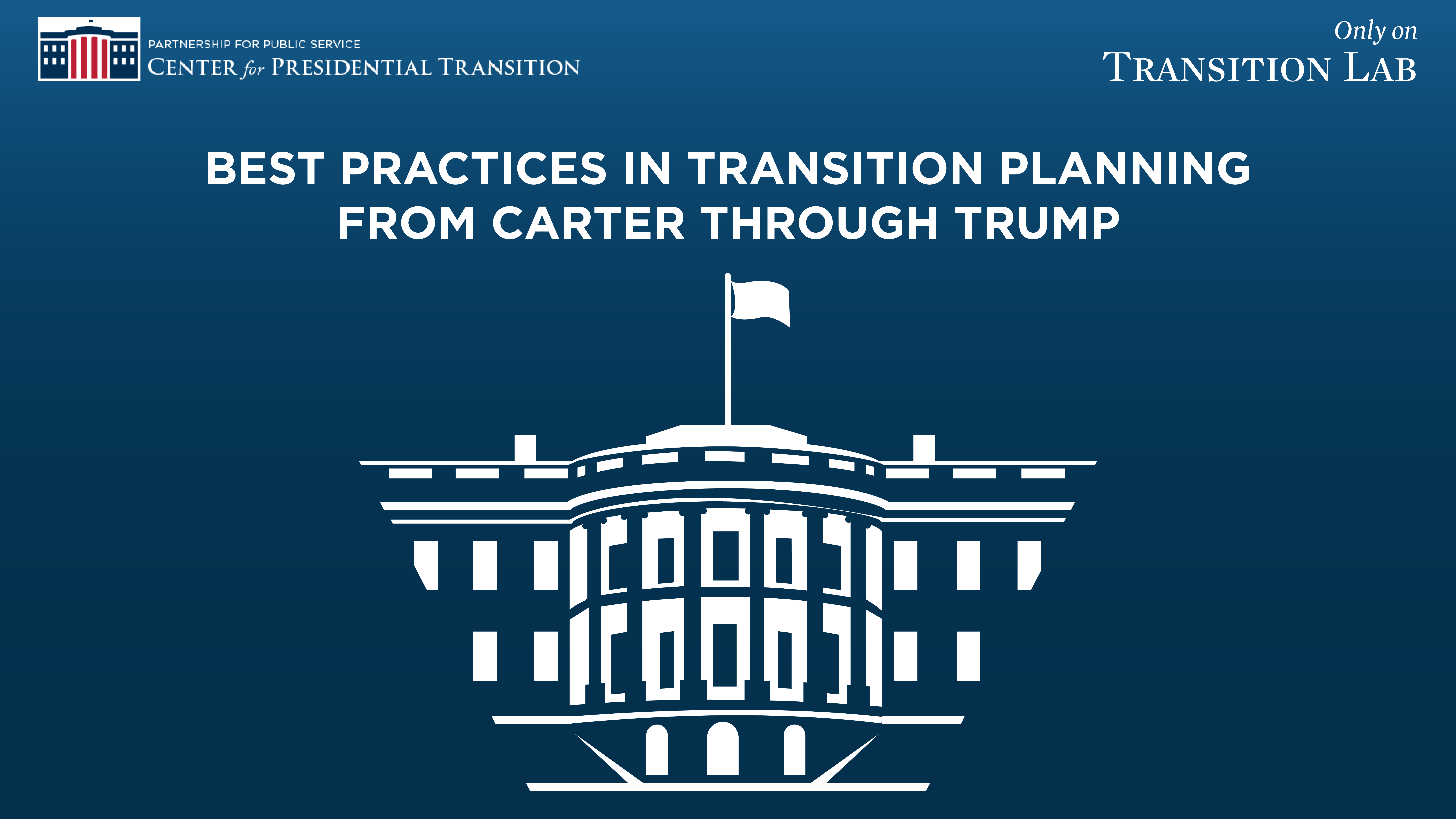Blog
February 24, 2020
The Carter transition to power
Stuart Eizenstat and David Rubenstein discuss their experience working on the Carter campaign, the transition and their own work in the Carter administration. The two explain that while Carter had an enormously consequential one-term presidency, the flawed transition had a lasting, negative impact on Carter’s presidency.
Listen, rate and subscribe on Apple Podcasts, Spotify, Stitcher and TuneIn.
[tunein id=”t139044538″]Read the highlights:
Dave: “Carter was the first president that actually diverted significant resources, both personnel and campaign resources, funding to transition planning. Why did he think that was important?”
Stuart Eizenstat: “I think the reason was Jimmy Carter is an engineer. He believes in planning and advanced planning. And he felt that if he could get a running head start by having a transition team begin to put together the kinds of policies we would implement—that this would help his presidency. . . actually the reverse happened and the reason is that David and I were heading the policy staff of the campaign. And unbeknownst to us until about a month before the election, Jimmy Carter had a parallel policy planning group for the transition headed by Jack Watson.”
David Rubenstein: “Sometimes your brain can have two lobes to it and they don’t necessarily work together. So [Carter] had a lobe for the campaign and a lobe working on the transition and he didn’t really see that they had to interact a bit and I think that was a part of the problem.”
Stuart Eizenstat: “The president basically gave the Cabinet secretaries free rein to name their own top deputies, deputy secretaries, undersecretaries [and] assistant secretaries who therefore were more loyal to them than they were to the president. Not a good idea.”
Dave: “Okay, so you’ve highlighted no chief of staff, a flawed personnel process and this dissonance between the campaign and the transition…What was the impact of governing because of this flawed transition process?”
David Rubenstein: “Carter is a very, very smart person, but he wanted to engineer everything, and he didn’t prioritize. He wanted to do so many things and he did do a lot of things, but he might’ve gotten more done if he has prioritized things a little bit better.”
Stuart explained that the absence of a strong chief of staff impeded their ability to set priorities.
Stuart Eizenstat: “The problem is so evident. We threw so much up at Congress. Tip O’Neill (Speaker of the House at the time) at leadership breakfasts would say week after week, ‘You’ve got to tell us your priorities. We can’t absorb all of this’… All of these [bills] came into Congress in the first year or so and they just bombarded Congress. So, we actually accomplished, as I mentioned at the beginning, an enormous amount, but it always paled in comparison to what we [gave Congress.]”
David Rubenstein: “I think Carter may have had the same phenomenon that may be the current president may have. When you’re president of the United States, you think you get the best information, you make the best decisions so forth, but you also think at the end of four years you’ve got this job down pretty well. You know how to do it and therefore you don’t really plan that much for the second term. I don’t really know, if Carter had won that election, exactly what his priorities were for the second term. I think it’s just like more of the same, but it wasn’t like what he had said during the campaign, ‘Here are the 10 things I’m going to do in the second term,’ because you’re kind of worn out. You kind of tell people this is what I did and elect me if you like what I did. Right now, today, if you were to sit down with President Trump, I’m not sure he could say here are the 10 things I want to do in a second term if I’m elected. So, I think somebody must, in a second term presidency, really focus at the end of that first term [and decide] what the [president is] going to do that’s really different or better than he did in the first term.”



